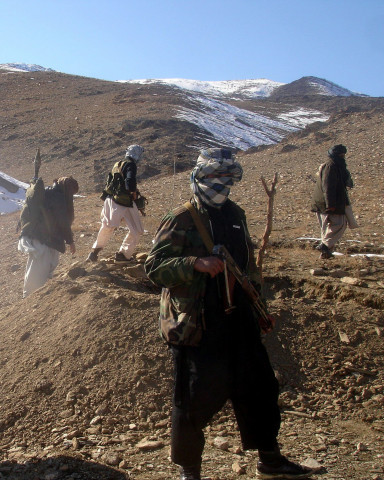Not surprised: Qatar talks bound to fail, say experts
It was believed that the US attempted to bypass both Pakistan and Afghanistan in secret negotiations with the Taliban.

For Pakistan, the Qatar initiative had always been a nonstarter. And for this very reason, the announcement by the Afghan Taliban that they are pulling out of direct talks with the United States has come as no surprise for Islamabad.
“It was inevitable … if you work in isolation such initiatives are bound to fail,” said a security official, reacting to the news being seen as the latest setback to US efforts of seeking a political settlement to the decade-long war in Afghanistan.
It was believed that the US attempted to bypass both Pakistan and Afghanistan when it began secret negotiations with the Taliban. While Afghan President Hamid Karzai publicly criticised the move, Pakistan chose to remain silent over the setting up of a Taliban political office in the Persian Gulf state of Qatar.
Islamabad and Kabul thought to have preferred Saudi Arabia or Turkey for such negotiations.
“We don’t mind if the office is set up in Qatar, Saudi Arabia or any other country. Our main concern is that all stakeholders must be on board,” said the official, who requested anonymity due to the sensitivity of the issue.
Security analyst Brig (retd) Mahmood Shah believes that even though Pakistan was not happy with the US’ ‘solo flight’, it did not attempt to sabotage the initiative.
“In fact Pakistan has even allowed Taliban leaders to travel to Qatar for talks,” said Shah, who has also served as the secretary of Federally Administered Tribal Areas (FATA).
Earlier, Foreign Minister Hina Rabbani Khar had suggested Kabul to take the lead in any efforts aimed at reaching out to the Taliban. However, without specifically naming the Qatar process, she insisted that Islamabad had done nothing to block any other initiatives.
Many experts believe that Qatar initiative aimed at limited gains but very few expected the process to fail so early on.
“Taliban agreed to talk to the Americans with an aim that they should be recognised as a force in Afghanistan. The talks failed earlier than expected,” Shah pointed out.
The move is also being seen as a possible strategic move by the Taliban to take advantage of the recent incident of burning of Holy Qurans and the more recent killing of Afghan civilians by a US solider.
The developments appear to have strengthened the Taliban and have led to the adoption of a tougher stance on talks with the Americans, argued Shah.
Published in The Express Tribune, March 16th, 2012.



















COMMENTS
Comments are moderated and generally will be posted if they are on-topic and not abusive.
For more information, please see our Comments FAQ